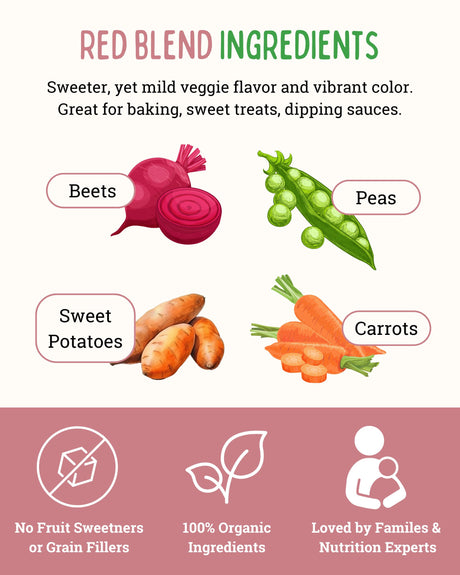Embracing the Zest of Citrus Fruits in Winter
The Essence of Fruits in a Balanced Diet
In the realm of a balanced and healthy diet, fruits hold a place of honor. Rich in essential nutrients, fruits offer a symphony of vitamins, minerals, fiber, and antioxidants, essential for maintaining optimal health. Among these, citrus fruits stand out, especially in winter, when our bodies crave more nutrients to combat the cold and boost immunity. Their vibrant colors, refreshing flavors, and nutritional prowess make them a winter dietary staple.
Spotlight on Citrus: Winter's Nutritional Powerhouse
This blog shines a light on the wonders of citrus fruits - their rich nutritional profile, the various types available, and the myriad ways they can enrich our winter diet. From the sunny burst of an orange to the tangy zest of a lemon, each citrus fruit brings its unique set of health benefits. We will delve into the myriad of nutrients they offer, explore the different varieties from oranges to grapefruits, and discover creative ways to weave them into our daily meals, adding a burst of flavor and health to the chilly winter days.
What are Citrus Fruits?

Defining Citrus: A Tangy Delight
Citrus fruits, known for their vibrant colors and refreshing flavors, are a distinct category of fruits belonging to the Rutaceae family. Characterized by their juicy segments and high vitamin C content, citrus fruits have a tangy and sometimes sweet flavor profile.
They are not just culinary delights but also nutritional powerhouses, offering a range of health benefits.
A Peek into Citrus History
The history of citrus fruits is as rich and varied as their flavors. Originating in Southeast Asia, these fruits have traveled across continents and cultures, becoming staples in diets worldwide. Historical records suggest that citrus fruits have been cultivated since ancient times, with their mention found in early literature and art.
Over the centuries, they have been valued not just for their taste but also for medicinal purposes, particularly for their ability to prevent scurvy, a disease caused by vitamin C deficiency.
The Citrus Family: A Spectrum of Flavors
The citrus family includes a wide range of fruits, each with its unique taste and nutritional profile. Oranges, with their sweet and juicy segments, are perhaps the most popular, perfect for juicing or eating fresh. Lemons, known for their tart flavor, are culinary favorites, adding zest to dishes and drinks.
Limes, similar to lemons but with a unique flavor, are key ingredients in many global cuisines. Grapefruits, with their slightly bitter taste, are often enjoyed at breakfast. Tangerines, smaller and sweeter than oranges, are loved for their easy peel and segments.
Each of these citrus varieties brings its own set of health benefits and culinary uses, making them versatile additions to any diet.
Nutritional Profile of Citrus Fruits

A Bounty of Vitamins and Minerals
Citrus fruits are celebrated not just for their unique flavors but also for their impressive nutritional content. They are famously rich in Vitamin C, a potent antioxidant vital for immune function, skin health, and collagen production. But the goodness doesn't stop there.
Citrus fruits also provide a good dose of other essential vitamins and minerals, including vitamin A, B vitamins, potassium, phosphorus, magnesium, and calcium. These nutrients play various roles in the body, supporting heart health, bone strength, and overall well-being.
Fiber and Antioxidants: A Dynamic Duo
Beyond vitamins and minerals, citrus fruits are a great source of dietary fiber, particularly soluble fiber, which is beneficial for digestive health and can aid in cholesterol management. They also boast a wealth of antioxidants, including flavonoids, which have anti-inflammatory properties and can help combat oxidative stress in the body.
These antioxidants not only contribute to the prevention of chronic diseases but also support the body's defense against environmental toxins.
The Health Benefits of Citrus Nutrients
The combination of vitamins, minerals, fiber, and antioxidants in citrus fruits translates to a wide array of health benefits. The high Vitamin C content is crucial for immune defense, especially during the colder months, and also aids in wound healing and iron absorption.
The potassium in citrus fruits helps regulate blood pressure and fluid balance, while the fiber promotes digestive health and can aid in weight management. Additionally, the antioxidants in citrus fruits play a role in reducing the risk of certain chronic diseases, including heart disease and some types of cancer.
Consuming citrus fruits regularly can thus be a delicious and easy way to support overall health and wellness.
Citrus Fruits and Immune Health

Boosting Immunity with Citrus
During the winter months, our immune system often needs extra support to ward off colds and flu, and citrus fruits emerge as natural allies. Rich in Vitamin C, these fruits are more than just a traditional remedy; they are backed by science for their immune-boosting properties.
Regular consumption of citrus fruits during winter can help strengthen the body's natural defenses. The high vitamin C content in citrus is crucial for the growth and repair of all bodily tissues, playing an important role in the immune response.
Vitamin C: The Immune System's Guardian
Vitamin C, abundantly found in citrus fruits, has been extensively studied for its role in supporting immune function. This essential nutrient aids in the production and function of white blood cells, which are key to fighting infections.
It also acts as an antioxidant, protecting cells from damage caused by free radicals. Research has shown that adequate Vitamin C intake can not only help reduce the duration and severity of common cold symptoms but also enhance the body’s resistance to pathogens.
More Than Just Vitamin C
Beyond Vitamin C, citrus fruits contain a range of other antioxidants and phytochemicals that contribute to immune health. Flavonoids, such as hesperidin and naringenin, found in citrus, have anti-inflammatory and antiviral properties.
These compounds work synergistically to enhance the body's immune response and provide a holistic approach to maintaining health, particularly during times when the immune system is under stress, such as the colder months. Including a variety of citrus fruits in the diet can thus offer comprehensive support to the immune system, helping to keep winter ailments at bay.
Citrus for Weight Management and Digestive Health
The Role of Fiber in Citrus Fruits
Citrus fruits, with their substantial fiber content, play a significant role in promoting digestive health and aiding weight management. The soluble fiber found in citrus, particularly in the white pulp and pith, helps to slow down digestion, leading to a prolonged feeling of fullness.
This can be particularly beneficial for those looking to manage their weight, as it reduces the likelihood of overeating. Moreover, the fiber in citrus fruits aids in the smooth functioning of the digestive system, helping to prevent issues like constipation and promoting overall gut health.
Incorporating Citrus for Optimal Health
Integrating citrus fruits into your diet can be both delicious and beneficial for digestive health and weight management. For a fiber-rich start to the day, add segments of orange or grapefruit to your breakfast cereal or yogurt. You can also enjoy a mid-morning snack of mandarins or tangerines, which are convenient and easy to eat. To add a zesty flavor to your salads, squeeze fresh lemon or lime juice over them.
Not only does this enhance taste, but it also adds nutritional value. In desserts, opt for citrus-based dishes like lemon sorbet or an orange and almond cake, which offer the benefits of citrus in a sweet treat.
By regularly including citrus fruits in your meals, you can enjoy their rich flavor while supporting your digestive health and maintaining a healthy weight.
Skin Health and Citrus
Citrus Fruits: A Natural Elixir for Skin
Citrus fruits are more than just a tasty addition to our diet; they are a natural elixir for skin health. The high content of Vitamin C in these fruits plays a pivotal role in maintaining skin health. Vitamin C is crucial for the synthesis of collagen, a protein that helps keep our skin firm and youthful.
Regular consumption of citrus fruits can help in maintaining the elasticity of the skin, reducing the appearance of wrinkles, and promoting a healthy complexion.
Antioxidants in Citrus: Combatting Skin Aging
Alongside Vitamin C, citrus fruits are rich in antioxidants, which are essential for protecting the skin from damage caused by free radicals. Free radicals can accelerate the aging process, leading to premature wrinkles and fine lines.
The antioxidants in citrus fruits help to neutralize these harmful molecules, protecting the skin from oxidative stress. This can result in delayed signs of aging and a more youthful appearance over time.
Vitamin C: Brightening and Healing
Vitamin C is also known for its brightening properties. It can help in reducing the appearance of dark spots and evening out skin tone, leading to a more radiant and uniform complexion. Additionally, the anti-inflammatory properties of Vitamin C can aid in reducing redness and swelling, making citrus fruits beneficial for those with acne-prone or irritated skin.
Regular inclusion of citrus fruits in your diet can thus contribute to clearer, brighter, and healthier skin.
Incorporating Citrus Fruits into Your Diet
Brightening Up Meals with Citrus
Citrus fruits can easily become a staple in your daily diet with a little creativity. Start your day with a refreshing glass of freshly squeezed orange or grapefruit juice, or add orange segments to your morning yogurt or oatmeal for a burst of natural sweetness.
Lemon zest can also add a bright flavor to warm oatmeal or cold cereal.
Citrus-Infused Lunches and Dinners
Incorporate citrus fruits into your lunches and dinners for a delightful tang. Add lemon slices to your baked or grilled fish for a zesty flavor, or squeeze fresh lime juice over tacos and salads for an extra kick.
A simple dressing made from olive oil, lemon juice, salt, and pepper can transform any salad into a citrusy delight. You can also use orange segments in stir-fries or paired with chicken for a sweet and savory combination.
Snacking with a Citrus Punch
For snacks, consider dipping tangerine segments into dark chocolate for a sweet and tangy treat. Lemon or lime zest can also be added to homemade hummus or yogurt dips for a refreshing flavor.
And don’t forget about the simple joy of snacking on a juicy clementine or mandarin for a midday vitamin C boost.
Citrus in Desserts and Beverages
End your meals on a bright note with citrus-based desserts. Lemon bars, lime sorbets, or orange-infused dark chocolate mousse can satisfy your sweet tooth while providing the benefits of citrus.
For a refreshing beverage, infuse water with slices of lemons, limes, oranges, or grapefruits – it’s a visually appealing and hydrating drink that is perfect for any time of the day.
Culinary Adventures with Citrus
Embrace the versatility of citrus fruits in your culinary adventures. Experiment with adding citrus juices and zests to marinades, sauces, and baked goods. The acidity of citrus can balance richer flavors, while the zest can add a burst of freshness to any dish.
By incorporating citrus fruits into your meals, you not only enhance the flavor profile of your dishes but also significantly boost their nutritional value.
Precautions and Considerations When Consuming Citrus Fruits
Navigating Allergies and Medication Interactions
While citrus fruits are packed with health benefits, it's important to be aware of potential allergies. Some individuals may experience allergic reactions to citrus, which can range from mild itching to more severe symptoms. Pay close attention to your body’s response when consuming these fruits, especially if you have a history of food allergies.
Additionally, citrus fruits can interact with certain medications, such as cholesterol-lowering statins and blood pressure medications, affecting their efficacy. Always consult with a healthcare provider to understand how citrus fruits might interact with any medications you are taking.
Selecting and Storing Citrus Fruits
To reap the full nutritional benefits of citrus fruits, it’s crucial to select and store them properly. Look for fruits that are firm and heavy for their size, indicating juiciness and freshness.
Citrus fruits can be stored at room temperature if they will be consumed soon, but for longer storage, keeping them in the refrigerator can extend their freshness for several weeks. Proper storage not only maintains the taste but also helps preserve the vitamins and antioxidants present in the fruits.
Preparing Citrus Fruits
When preparing citrus fruits, keep in mind that a significant amount of nutrients, especially fiber and certain flavonoids, are found in the pith and peel. Try to retain as much of the white pith as possible when peeling or segmenting citrus fruits for consumption.
Additionally, consuming citrus fruits in their whole form, rather than solely juicing them, ensures you receive the full range of nutrients, including fiber. When juicing, consider using a method that retains some of the pulp, where many of the nutrients are concentrated.
Remember, fresh is best when it comes to citrus, as vitamin C degrades over time and when exposed to heat, so enjoy these fruits raw or minimally processed to get the most out of their nutritional benefits.
Embracing the Vibrant World of Citrus Fruits

Celebrating Citrus: A Nutritional Powerhouse
As we conclude our citrus journey, it's clear that these fruits are more than just a splash of color and flavor. They are nutritional powerhouses, rich in essential vitamins like Vitamin C, minerals, fiber, and antioxidants.
From bolstering immune health and aiding in digestion to supporting heart health and promoting healthy skin, the benefits of incorporating citrus fruits into our diet are manifold. These fruits not only offer a delicious way to enhance our meals but also play a crucial role in maintaining our overall health.
A Spectrum of Health in Every Peel
The variety within the citrus family offers a wealth of options for enhancing your diet. Whether it's the tangy zest of a lemon, the sweet burst of an orange, or the refreshing bite of a grapefruit, each citrus fruit brings its unique set of nutrients and benefits.
Including a range of citrus fruits in your diet ensures you’re not only getting a variety of flavors but also a broad spectrum of health benefits. Experiment with different citrus types in your meals, snacks, and even desserts to keep your diet vibrant and nutritious.
Embracing Seasonal Produce for Optimal Health
As we enjoy the bounty of citrus fruits, especially in the winter months, it's a reminder of the importance of seasonal produce in our diet. Eating seasonally ensures we get the freshest produce, packed with optimal nutrients.
It also aligns our eating habits with the natural rhythms of the environment, contributing to a sustainable and balanced lifestyle. Let's cherish the gifts of each season, starting with the delightful variety of citrus fruits that winter brings, and celebrate the flavors and health benefits they add to our lives.
Leave your comments below; we love to hear from you! And don't forget to follow EasyPeasie for more veggie info and convo on YouTube, Facebook, and Instagram! ~ThePeas













